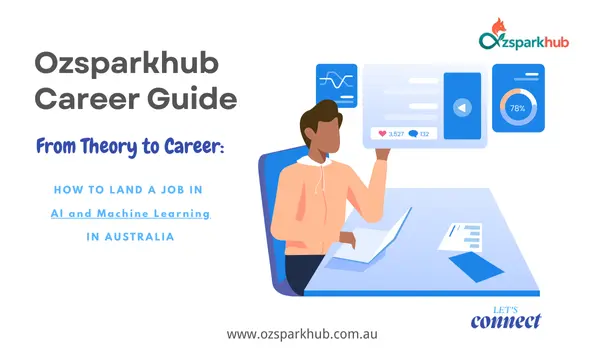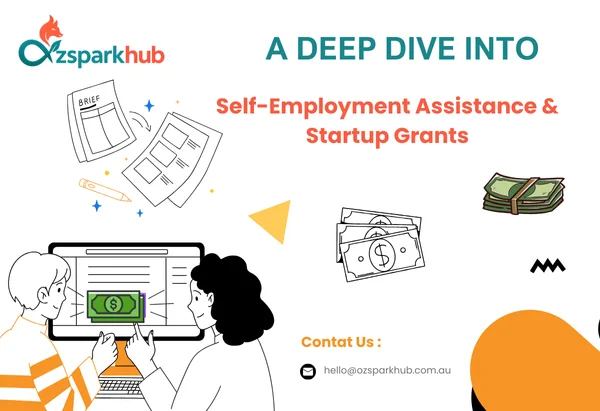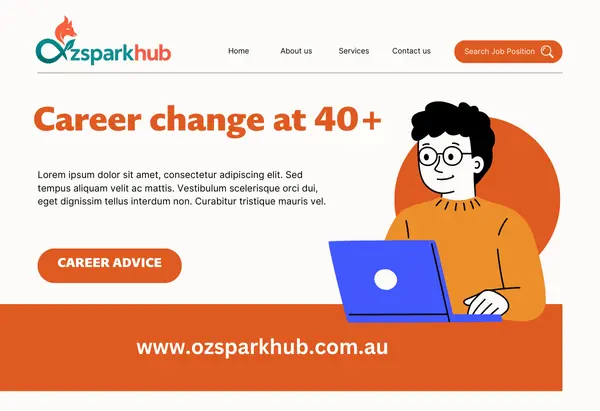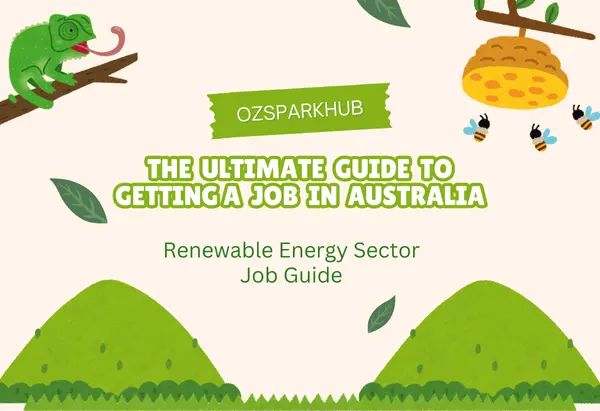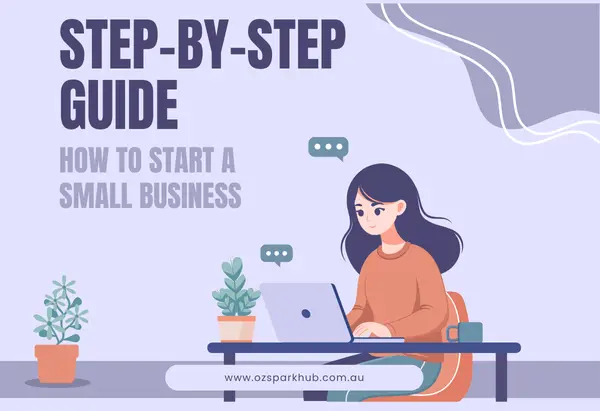AI Jobs Australia 2025: Complete Guide to Machine Learning Careers & Salaries
Australia is in the midst of an AI revolution. The nation's AI workforce has exploded from just 800 workers in 2014 to over 33,000 in 2023, and the Tech Council of Australia projects this will reach 200,000 by 2030 - a staggering 500% growth. With generative AI alone expected to contribute $115 billion to the Australian economy, this represents one of the most lucrative and future-proof career opportunities of our generation.
But there’s a common myth that needs busting: you do not need a PhD from a top-tier university to land a high-paying job in AI. While academia is one route, today's employers are increasingly focused on practical skills and demonstrated ability.
This guide will show you the real-world path from theory to career. We'll cover the in-demand roles, the essential skill stack, the pathways to get there, and the secret weapon that will get you hired: your portfolio.
Understanding the AI Job Titles
The term "AI job" is broad. In reality, the roles are quite specialized. Here are the most common titles you'll see and what they actually do:
Machine Learning Engineer (The Builder): This is one of the most in-demand roles. ML Engineers take the theoretical models created by data scientists and build, deploy, and maintain them in real-world applications. They are the bridge between data science and software engineering.
Data Scientist (The Analyst & Strategist): Data Scientists analyze complex datasets to extract insights, build predictive models, and inform business strategy. In an AI context, they are the ones who experiment with and select the best algorithms for a given problem.
AI Engineer (The Infrastructure Expert): Similar to an ML Engineer but often with a broader scope, AI Engineers design and build the entire infrastructure that allows AI models to run efficiently and at scale.
AI Product Manager (The Business Leader): This non-technical role is becoming crucial. They guide the strategic direction of an AI product, ensuring it solves a real customer problem and is commercially viable.
The 2025 AI/ML Skill Stack: What's Actually In Demand
The AI job market has evolved rapidly. In 2025, employers prioritize deployment-ready skills over theoretical knowledge. Here's what Australian companies are actively seeking:
Core Technical Skills (Non-Negotiable)
- Programming (Python Dominance): Python remains the undisputed king of AI, but proficiency now extends beyond basics:
- Data Manipulation: Pandas, NumPy, Polars for large datasets
- Machine Learning: Scikit-learn, XGBoost, LightGBM
- Deep Learning: PyTorch (increasingly preferred), TensorFlow/Keras
- Generative AI: Transformers library, OpenAI API, Anthropic Claude API
- SQL & Data Engineering: Critical for real-world applications - PostgreSQL, BigQuery, Snowflake
- MLOps & Deployment: The biggest differentiator in 2025:
- Containerization: Docker, Kubernetes
- Model Serving: FastAPI, MLflow, TensorFlow Serving
- Cloud Platforms: AWS SageMaker, Google Cloud AI Platform, Azure ML
- Version Control: Git/GitHub for collaborative development
Emerging Skills for 2025
- Prompt Engineering: Mastering how to communicate effectively with large language models
- LLM Integration: Building applications that incorporate ChatGPT, Claude, or open-source models
- AI Safety & Ethics: Understanding bias, fairness, and responsible AI deployment
Human Skills (The Differentiator)
AI-skilled workers in Australia command a 56% wage premium on average. These soft skills separate the highest earners:
- Business Translation: Converting vague business problems into technical AI solutions
- Stakeholder Communication: Explaining AI capabilities and limitations to executives and clients
- Domain Expertise: Understanding the specific industry you're applying AI to (finance, healthcare, retail)
- Continuous Learning: The field evolves monthly - successful professionals dedicate time to staying current
Your Pathway to an AI Career (No PhD Required)
There are two main pathways to enter the AI field in Australia today.
Pathway A: The University Route
This is the traditional path. A Bachelor's degree in Computer Science, Data Science, or Software Engineering provides a strong theoretical foundation. To specialize further, many students now pursue a Master of Data Science or Master of Artificial Intelligence. Top universities across Australia offer these programs and they are highly regarded by employers.
Pathway B: The Upskilling Route (Faster & More Practical)
This route is perfect for career changers or those who want a more direct path to a job.
- AI/Data Science Bootcamps: Intensive, 3-6 month programs designed to get you job-ready. Providers like General Assembly, Le Wagon, and Coder Academy have strong industry connections in Australia.
- Online Certifications: Platforms like Coursera, edX, and DeepLearning.AI offer professional certificates from top global universities and companies. These are flexible, affordable, and allow you to build specialized skills.
The Ultimate Proof: Building Your Project Portfolio
For many hiring managers, your portfolio is more important than your qualifications. A portfolio provides concrete proof that you can apply your skills to solve real problems. It's your single most important asset.
Your portfolio should be hosted on GitHub, where employers can see your code and your thought process.
What makes a good portfolio project?
- Solve a Problem You Care About: Don't just copy a tutorial. Find a unique dataset (e.g., from data.gov.au) and solve a problem that interests you. Maybe it's predicting house prices in your suburb or analyzing AFL player statistics.
- Show the Full Workflow: Don't just show the final model. Document your process: data cleaning, exploratory data analysis, feature engineering, model selection, and evaluation.
- Compete on Kaggle: Kaggle is a platform for data science competitions. Participating (and performing well) is a huge credibility signal to employers.
- Write a Blog Post: Create a simple blog and write an article explaining one of your projects. This demonstrates your communication skills.
Who's Hiring AI Talent in Australia? (2025 Update)
Australia's AI hiring market is booming across sectors. Based on current job postings and industry reports, here are the top employers:
Global Tech Giants with Major Australian Operations
- Google Australia: Consistently ranked as a top desired employer, with expanding AI teams in Sydney and Melbourne
- Microsoft Australia: Major supporter of Australia's AI ecosystem, actively hiring across cloud AI services
- Amazon Web Services: Growing their AI/ML specialist teams for enterprise customers
Australian Tech Success Stories
- Canva (Sydney): Valued at $40+ billion, heavily investing in generative AI features with regular hiring
- Atlassian (Sydney): "Team Anywhere" approach, consistently hiring AI engineers for product integration
- Airwallex (Melbourne): Fintech unicorn using AI for fraud detection and risk assessment
Financial Services (Highest AI Adoption Rate)
In 2024, 11.8% of job postings in Financial and Insurance Activities demanded AI skills - the highest of any sector:
- Commonwealth Bank: Leading AI adoption among big four banks
- ANZ Banking Group: Significant investments in AI-powered customer service
- Westpac: Growing data science and AI teams
- NAB: Focus on AI for risk management and personalization
Australia's Leading AI Startups
- Harrison.ai (Sydney): Healthcare AI company helping radiologists and pathologists - backed by major investors
- Leonardo.Ai (Sydney): Generative AI platform with 7+ million global users, recently raised $47 million
- Relevance AI (Sydney): No-code AI platform with 6,000+ companies registered in recent months
AI Salaries in Australia: 2025 Market Data
Current salary data from PayScale, Indeed, SEEK, and Glassdoor shows strong compensation across all levels:
Data Scientists
- Average Salary: $99,125 - $135,000 (varies by location and experience)
- Range: $69,000 (entry) to $142,000 (senior)
- Sydney Premium: Typically 15-20% higher than national average
Machine Learning Engineers (Higher Earning Potential)
- National Average: $133,100 - $151,132 per year
- Sydney Average: $165,631 per year
- Entry Level: $105,000 starting salary
- Experienced (5+ years): $176,000 - $215,500
- Senior/Lead Roles: $200,000 - $250,000+
Geographic Premium
Sydney commands the highest salaries, followed by Melbourne. Brisbane and Perth offer competitive packages with lower living costs.
Skills Premium
Professionals with MLOps, generative AI, and deployment experience command 20-30% premiums above base salaries. AI-skilled workers earn 56% more than their non-AI counterparts on average.
The Job Market Reality: What Employers Actually Want in 2025
Based on analysis of current Australian job postings, here's what's actually in demand:
Most Common Job Requirements
- Python + SQL: Found in 85% of AI job postings
- Cloud Experience: AWS, Azure, or GCP mentioned in 70% of roles
- MLOps Tools: Docker, Kubernetes, CI/CD pipelines increasingly essential
- Business Acumen: Understanding of the industry you're applying AI to
- Portfolio Projects: Demonstrable experience deploying models in production
Regional Opportunities Beyond Sydney/Melbourne
- Brisbane: Growing fintech and healthcare AI sectors
- Perth: Mining companies investing heavily in AI for operations
- Adelaide: Defence and space technology AI applications
- Remote Work: Many Australian AI roles offer hybrid or fully remote options
Breaking Into AI: A 90-Day Action Plan
Days 1-30: Foundation Building
- Complete Python for Data Science course (Coursera/edX)
- Set up development environment (Python, Git, Jupyter)
- Start first portfolio project using Australian government open data
Days 31-60: Skill Development
- Learn ML fundamentals with Scikit-learn
- Complete cloud platform certification (AWS/Azure/GCP)
- Join AI communities (Data Science Melbourne, Sydney AI Group)
Days 61-90: Market Preparation
- Deploy first model using cloud services
- Create professional GitHub portfolio
- Apply for entry-level roles and internships
Your AI Career Starts Today
A career in AI is no longer an exclusive club for PhDs. It is a practical, accessible, and incredibly rewarding path for those with the curiosity and drive to learn the required skills.
The formula is simple: Learn the foundational skills + Build a portfolio of real projects = Get Hired.
Your journey doesn't start with a university application or a perfect background. With Australia needing to grow its AI workforce by 500% to reach 200,000 professionals by 2030, the opportunity is unprecedented.
Whether you're in Sydney's tech hub, Melbourne's startup ecosystem, or anywhere else in Australia, your path to a six-figure AI career starts with a single step: writing your first line of Python code.
The resources are out there. The demand is undeniable. Your future in Australian AI is waiting for you to build it.
Ready to start your AI career in Australia? Explore more career guides and industry insights at OzSparkHub - your complete resource for thriving in Australia's tech ecosystem.
AI Jobs Australia 2025: Complete Guide to Machine Learning Careers & Salaries
